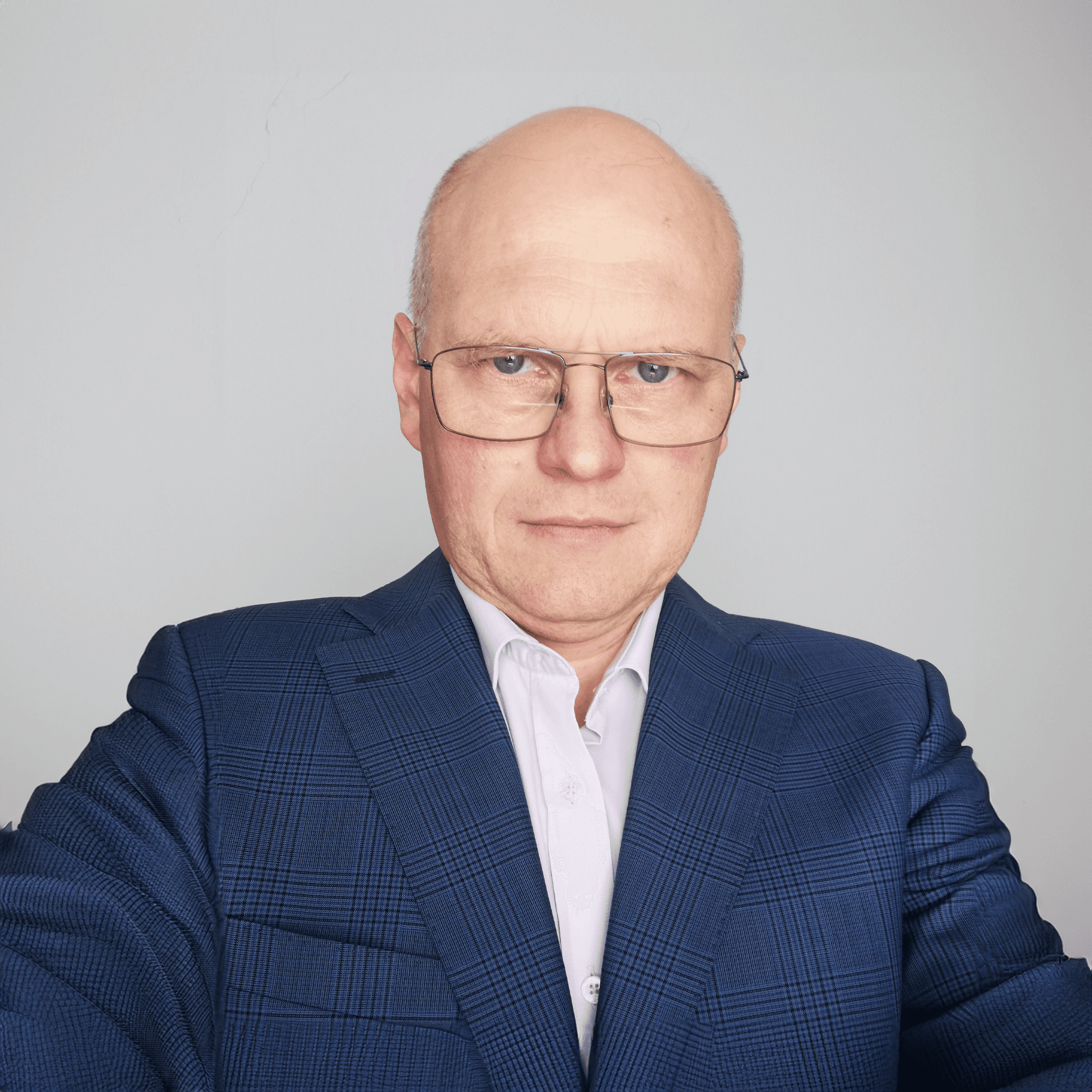Всі публікації


The West sold us a faulty social theory
The main problems of Ukraine that have not been solved during the years of independence are lack of an appropriate social theory and experience of life in a successful prosperous society. So where to start?
13 January, 2025
Austrian economic school
Reforms
Поширити
A high-quality economic theory based on economic science should hold a central place in the system of social sciences and become the basis of a new social theory.
In the post-Soviet space, after the natural destruction of the mechanisms supporting social ideology, the dominant Marxist social theory was gradually replaced by the theory of the welfare state, i.e., de facto, Keynesianism.
Keynesian economics came to us through translations of leading Western economics textbooks, some of which mentioned Marx as a “great economist.” This was something some post-Soviet economics professors liked to boast about, so Marx’s theory was not completely abolished, and this was a key mistake that caused a domino effect.
The key mistake of the west or how to sell a bright wrapper instead of an effective economic theory
Ignorance of the history of theoretical and economic discourse of world economic thought and the initial fascination with the Western living standards unattainable for us considerably lowered the level of critical perception of theoretical and methodological concepts. On the solid foundation of Marxist beliefs destroyed by the realities of life, the imported Western mainstream economic theory looked adequate: “people live in prosperity according to it.”
Econometrics was introduced into the curriculum. New microeconomics textbooks in the continuous search for market equilibrium were full of A. Marshall’s crosses (the point of intersection of the demand and supply curves shows the equilibrium market price), marginal utility analysis, formalized preference relations and other interesting tools of analysis, but the average reader somewhat feared the econometric formalization of the information presented.
Macroeconomics textbooks demonstrated aggregate demand and supply, taught how to calculate GDP in three ways, demonstrated the Keynesian consumption function, revealed the sacred secret of the Keynesian cross (a macroeconomic model of a positive interdependence between aggregate spending and the general price level in a country) and the IS-LM model (the Hicks-Hansen model, which shows the relationship between interest rates and the asset market), fascinated readers with monetary aggregates and types of fiscal and monetary policy. It seemed that mastering this set of tools of economic analysis was the very key to our well-being, which we needed so much then and which remain no less necessary now.
However, all this lush model diversity unseen before hid the main concepts of the mainstream: equilibrium in microeconomics and the need for state intervention in the economy.
Yes, of course, in microeconomics there were concepts of consumer and buyer sovereignty, which provided for freedom of economic decision-making, but macroeconomics was completely permeated with interventionism: from the calculation of supposedly market GDP, but with a component of government expenditures, to various types of fiscal and monetary policy and regulation of foreign trade.
It was through textbooks on micro and macroeconomics that the academic community learned incorrect economic theory, which it continues to instill in students' heads, forming a false economic worldview.
However, we began to understand this only later: Ukraine ended up among the poorest countries in Europe with a record high depopulation after decades of following the concepts of a total state control over the economy. Replacing Marxist total distribution with Keynesian interventionism did not allow for a deep economic transformation. Keynesian textbooks defined the ideology of reforms: preserving Leviathan instead of economic freedom. We could not expect that the successful Western civilization, which we actually knew so little about, would become a supplier of a faulty social theory. Although the fact is that the West sold this same faulty theory to itself.Share
Back in 1949, when the first edition of Ludwig von Mises’s main work “Human Activity: A Treatise on Economic Theory” was published, he wrote that what is taught today in most universities under the name of economic theory is actually its negation, i.e., the problem is not new, and the “left turn” in the world has been going on for over 100 years.
But a more important issue for us is the spread of the ideas of economic Freedom in Ukraine. Today, we have gained access to an alternative or unorthodox economic theory and, in general, to the ideas of the Austrian School of Economics. The first Western scientific works that increased attention to the ideas of Freedom in the Ukrainian academic space were the works by Friedrich Hayek. Why Hayek? Because he was legitimized by the mainstream thanks to the Nobel Prize in Economics he received. Therefore it began to be translated and published in the former Soviet Union, and its first edition dates back to 1990. Friedrich Hayek's works were first published in Ukrainian only in 2000.
Ludwig von Mises was first published in Ukrainian only in 2021, thanks to the translation by a scientific expert at the International Liberty Institute Mykola Bunyk. His book was published in Lviv, where von Mises was born, with a print run of only 200 copies.
We can state that official economic science still tries not to notice the Austrian School of Economics and its achievements, that is, accordingly, it does little in the direction of the movement towards economic Freedom. This is because the official economic science finds it unprofitable, uninteresting, and troublesome, because it is primarily busy serving the interests of the authorities, and the few supporters, who are fortunately among the teachers at Ukrainian universities, do not yet have the necessary weight and influence.
The vast majority of Ukrainian academic science is financed from the state budget, and this imposes serious restrictions on the popularization of the principles of economic freedom.
Therefore, the popularization of the ideas of economic freedom, free economy, translation and publication of classical works of the Austrian School of Economics, modern supporters of libertarianism is an exclusively private initiative and is carried out in Ukraine at the expense of private funding, an example is the publishing house Well Books. This is a great investment in the intellectual future of Ukraine.
Praxeology is a new social theory of Liberty
The specific intellectual foundation of the ideas of economic Freedom is Ludwig von Mises' magnum opus “Human Activity: A Treatise on Economic Theory”, which was first published in 1949, but was published in Russian only in 2000 thanks to the private initiative of Alexander Kuryaev, the release of the book in Ukrainian is expected in the near future.
Why is this book so important for popularizing the ideas of Liberty, for forming a new worldview? "Human Activity" is the foundation on which we have the opportunity to build a new social theory, since in it our compatriot Mises outlined a range of conceptual issues, much broader and more fundamental, in contrast to the economic theory familiar to us.
This book is the theoretical basis of praxeology, the science of human activity, and it was in this book and in his other works that Ludwig von Mises considered a very wide range of social issues, forming the concept of the "acting man", i.e., a person who takes into account time, who makes decisions, who chooses tools, and who, perhaps, does not have sufficient theoretical knowledge, but evaluates the results of their activities.
Since economic theory is a central part of the social sciences, it is exactly this theory that should become the basis for a new social theory. A correct theory, in turn, must give correct results, and not those that economists currently observe and study.
In other words, we must form a clear chain: correct methodology in the social sciences - correct research results - a prosperous life. Teaching economic theory must move away from memorizing obscure models and become the basis for studying the laws of human activity based on the bright achievements of Mises and other scientists who we attribute to the “Austrians”. This will significantly change the erroneously placed emphases in textbook materials and add provisions that have been overlooked by the modern mainstream, such as time preference, consumer sovereignty, the role of private property, voluntariness of exchange, consideration of the forms and consequences of interventionism, the Austrian theory of the business cycle, and others.
Revitalizing economic theory, and specifically the achievements of Mises and other ASE scientists, can significantly improve the economic worldview and is the main task of today. The introduction of praxeology into the social sciences will significantly increase the degree of coherence of their theoretical calculations with reality, which will create greater confidence in the social sciences, increase the quality and improve the understanding of the limits and tolerances of economic forecasts.
Mises's creative legacy is the embodiment of the ideas of Liberty, since it is in his works that human activity and interaction between people on the basis of voluntary exchange are considered, which makes it possible to come to an understanding and awareness of the importance of economic freedom for prosperity and well-being.
Conclusions: social theory and the eternal dream of Ukrainian liberty
These are ideas of the Austrian School of Economics that will finally allow implementing a long-standing Ukrainian dream of liberty, because if we ask every Ukrainian, we will get the answer - the main thing is Liberty, but at the same time, Ukraine, according to the Fraser Institute Index, is in 150th place in the ranking of economic freedom.
This gap between ideas and their practical implementation must be overcome due to the fact that the correct economic theory of Mises must be supplemented by Hayek, Rodbard, Kirchner and other voices of the Austrian School.
Ukraine desperately needs its own ideological revolution, which will break the shackles of interventionism and allow the national idea of liberty and Independence to be realized, because as Ludwig von Mises wrote, “…what is usually called the industrial revolution is the product of an ideological revolution caused by the teachings of economists.” Therefore, the task of economists was to break the old shackles of incorrect economic theory, which we recklessly imported, and the legacy of Ludwig von Mises, praxeology, the ideas of ASE should become the basis of a new social theory of economic Liberty. Since the main problems of Ukraine, which no one has even tried to solve all the years of independence:
- We do not have a correct social theory.
- We lack practice and experience of a successful prosperous society.
We need to solve these two tasks virtually simultaneously, develop such a theory and implement it in the form of reforms, in order to overcome our poverty, chronic backwardness, depopulation, and a bunch of, in fact, existential problems of Ukrainian society.
Поширити
Теми
Austrian economic school
Reforms

Dmytro Dusheiko
A specialist in finance and business processes, business trainer with 15 years of experience in teaching economic theory, Doctor of Economics, supporter of AES, translator of articles and books from the English language, contributor to Wikipedia.

